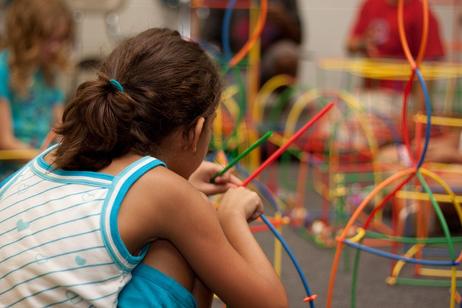How to Choose a Private School That Aligns with Your Family Values
Selecting a private school is more than picking a place for academic instruction—it’s choosing a community, a philosophy, and a partnership in raising your child. While class size, test scores, and extracurriculars matter, alignment with your family’s values is often overlooked yet essential.
Families who find their best-fit schools look beyond prestige and focus on shared priorities. Here’s how to approach your search with clarity and confidence, ensuring your child’s educational environment supports academic success—and personal and ethical development.
Define Your Family’s Core Educational Values
Start by clarifying what matters most to your family. Every school promotes ideals, but the best-fit ones will reflect the beliefs you already live and model.
Ask yourselves:
Do we want a faith-based or secular environment?
How important are character education or community service?
Do we value academic rigor, creativity, independence, or structure?
What are our views on discipline, leadership, and competition?
Is diversity—of thought, background, or culture—a top priority?
By answering these as a family, you’ll be better equipped to identify schools that share your core values. For example, families seeking a religious foundation may explore Christian private schools, while others may prefer independent schools with a progressive outlook.
Look Beyond the Brochure: Investigate Mission and Culture
Every private school publishes a mission statement—but what matters is how that reflection is lived daily.
Consider:
Does the school’s mission and philosophy resonate with your values?
How does it handle behavioral expectations, discipline, peer relationships, and responsibility?
Are there chapel programs, advisory systems, or service-learning initiatives that reflect its moral framework?
What about parent-school partnership models—does the school expect strong involvement, or emphasize student independence?
Visit campuses, observe classes, attend assemblies, and speak with current families. The more immersed you are, the clearer the school’s culture will become. For guidance on what to observe, see our resource on evaluating and choosing a private school.
Evaluate How the School Supports Social and Emotional Growth
Values are reinforced not just through curriculum, but via the school’s policies, relationships, and priorities. Ask about:
Character education programs
Conflict resolution or restorative justice practices
Mental health support and well-being structures
How diversity, equity, and inclusion are woven into curriculum and community life
A school’s approach to student development will reveal more about its values than academics alone.
Match the Learning Philosophy to Your Parenting Style
Families vary in what educational philosophy best complements their approach:
Do you lean toward structured, traditional environments with clear hierarchies?
Or do you prefer progressive schools, emphasizing inquiry, collaboration, and student-led learning?
Neither is superior—only one may resonate more deeply with your family’s style. Learn more about academic philosophies in private schools.
Ask Direct Questions During the Admissions Process
Admissions is a two-way conversation. Don’t hesitate to ask:
What kind of graduates do you aim to produce?
How do you collaborate with families on discipline, identity, and social media matters?
How are differing viewpoints or values handled within the community?
You're evaluating them—and they’re evaluating your alignment with their mission. Honest dialogue allows both sides to make informed decisions.
Conclusion: Value Alignment Leads to Long-Term Success
Choosing a private school is deeply personal—and when family values and school cultures align, the experience can be transformative. Students thrive in environments where school and home reinforce consistent messages about learning, growth, and purpose.
By defining your values, conducting thorough research, and asking thoughtful questions, you can find a school that supports not just your child's education—but your family’s values every step of the way.















